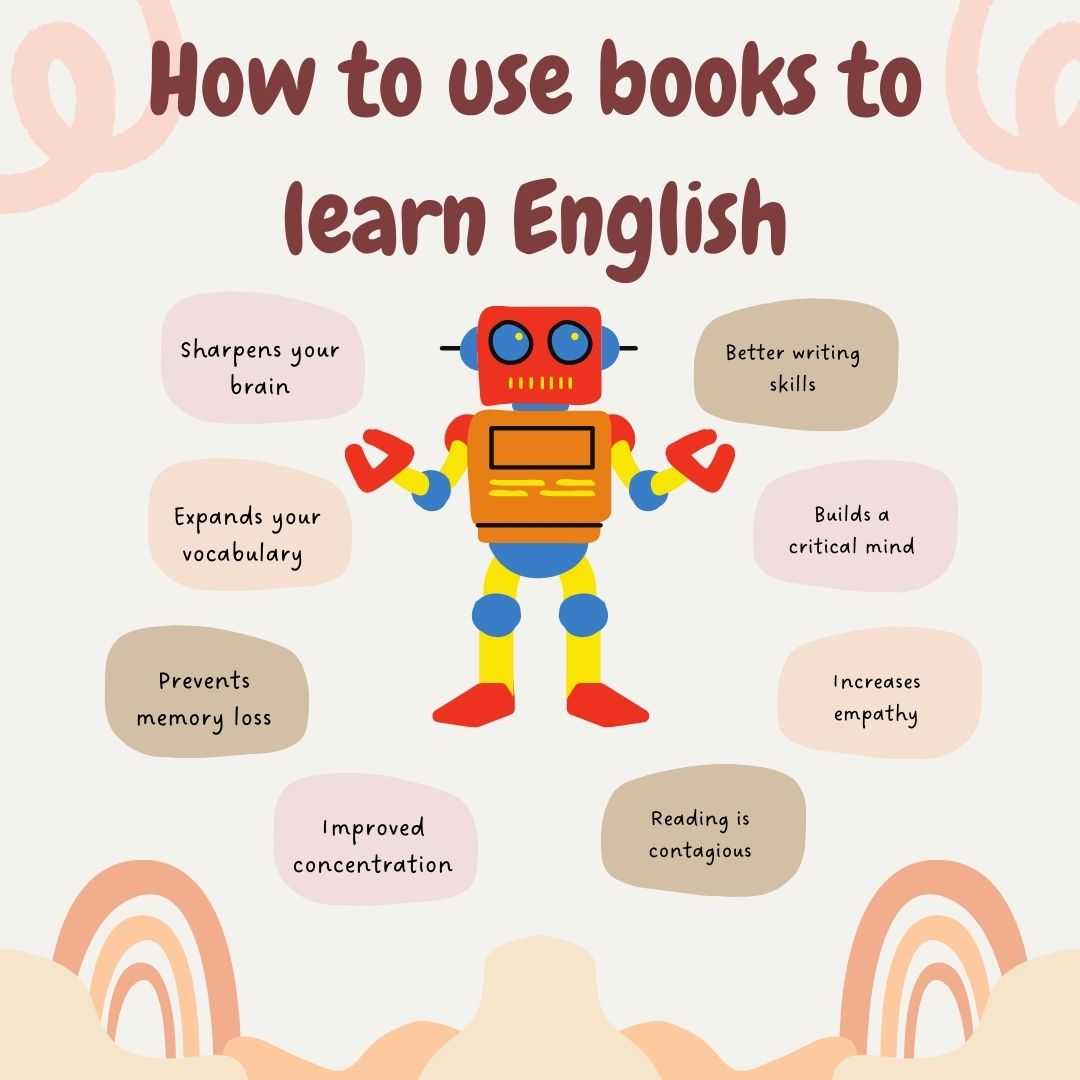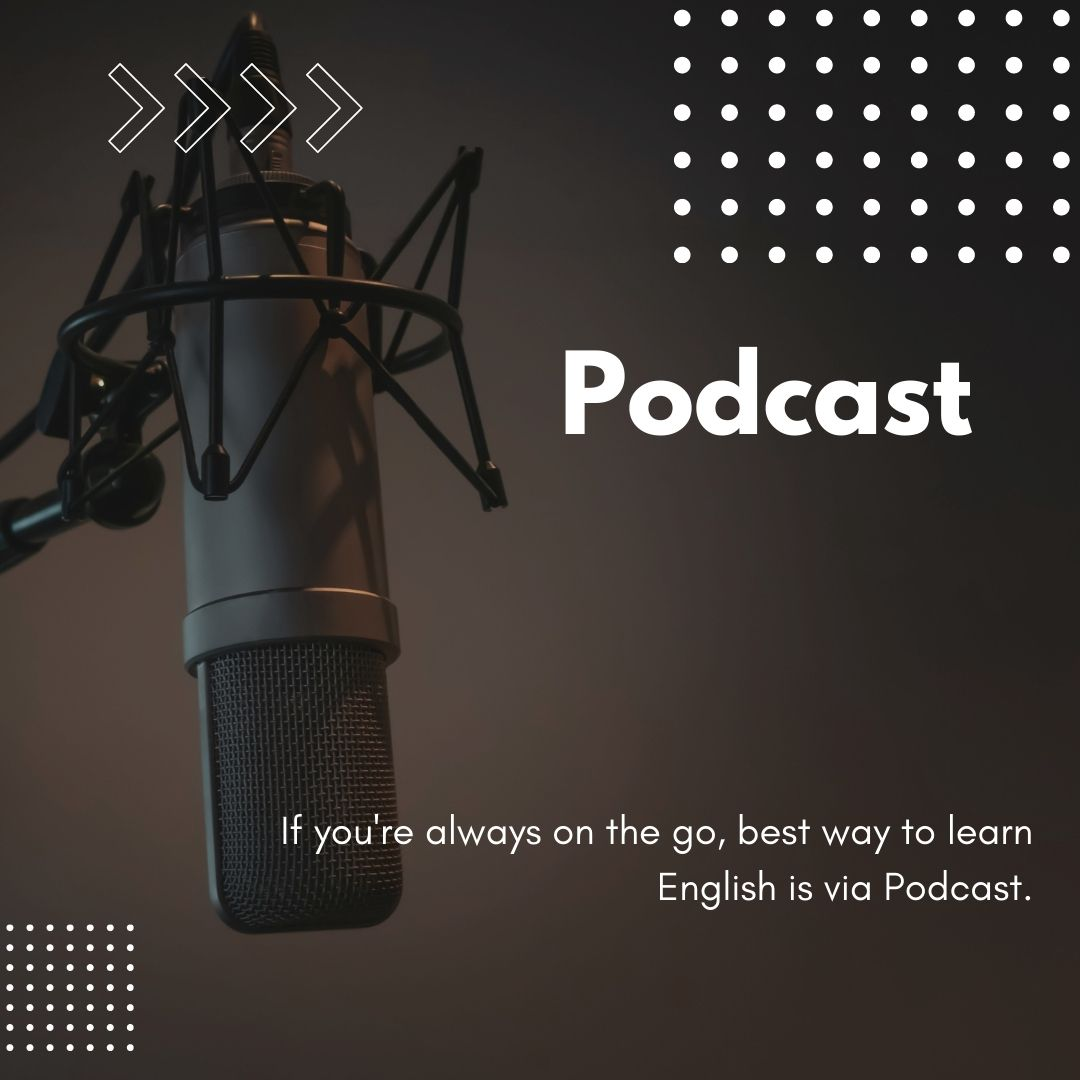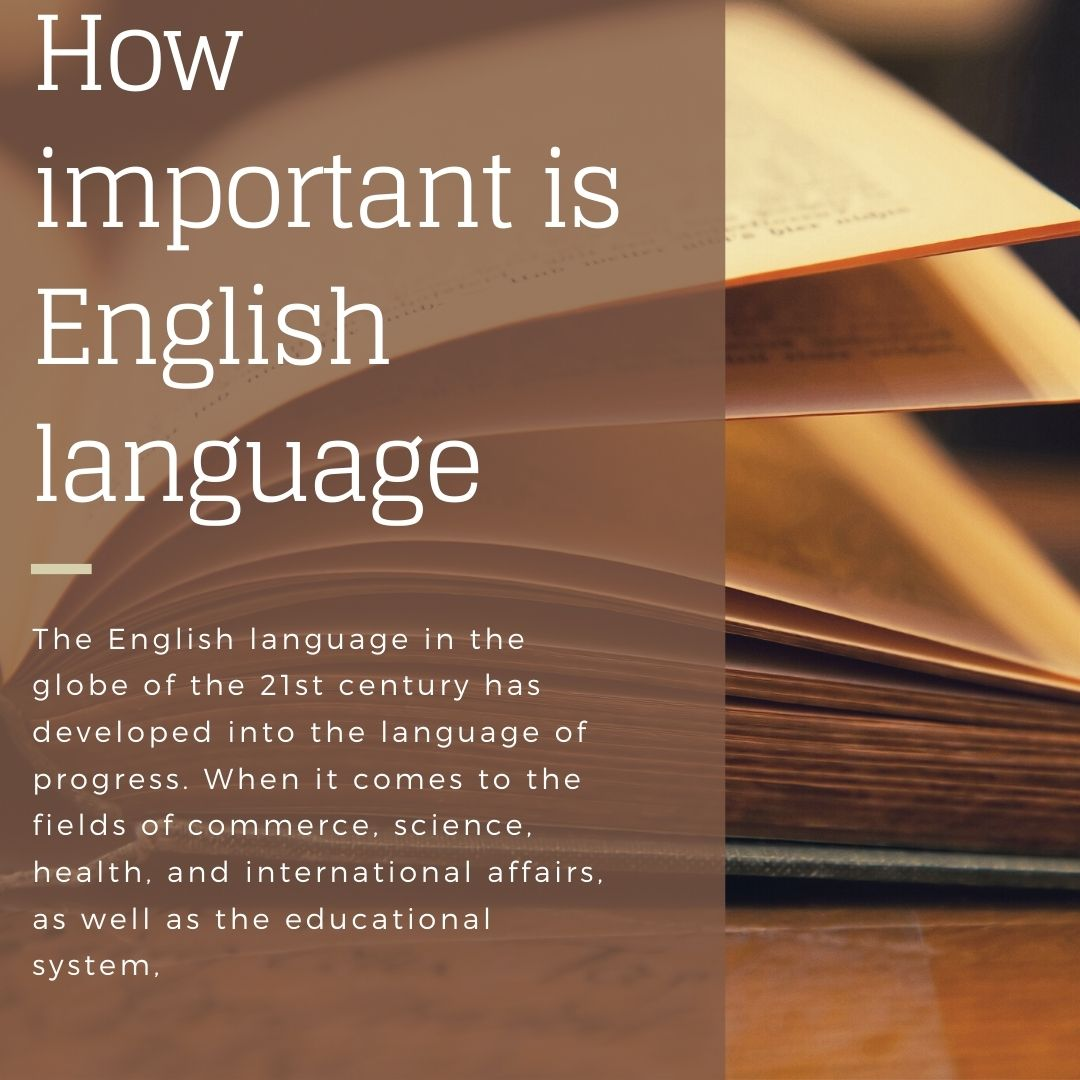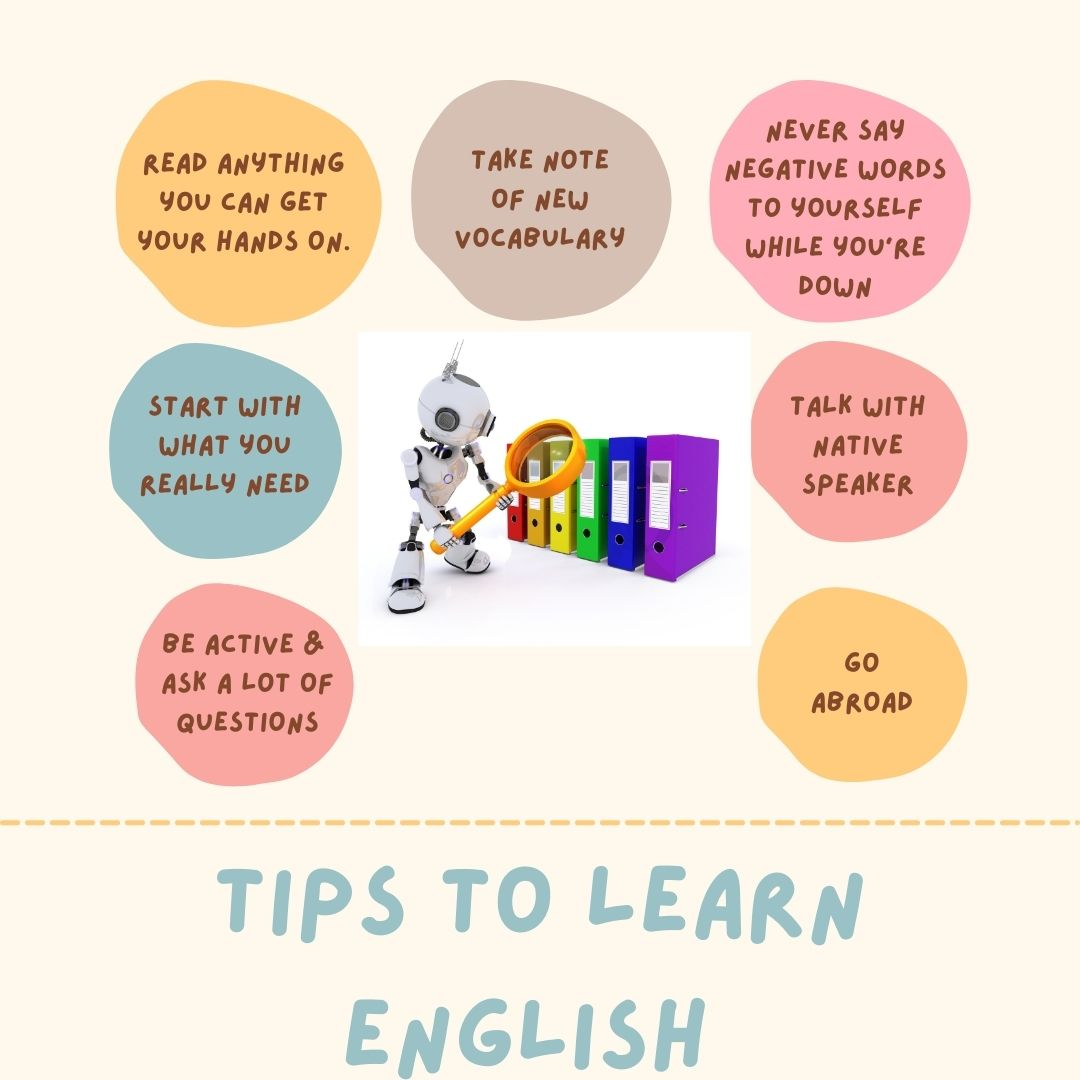English in the 21st-century world evolved to be the language of progress. In the world of business, science, medicine, international relations, and the education sector, English is the main language used for communication. The information available on the internet is also largely written in English, which in turn gives the masses access to news and research in a language they can understand.
One reason for the prevalence of English is its status as the lingua franca of the world. For years, it has been considered as the medium of international and intercultural communication and it continues to be used in this manner. Of course, the number of users affects people’s preferred language to use. For instance, in 2021, English remained the most spoken language in the world, with 1.3 billion people considered to be native speakers. Because there are many English speakers around the world, people might opt to use English to communicate with the community or in school.
(Title: THE ROLE AND PLACE OF ENGLISH IN INTERNATIONAL COMMUNICATION
https://eprajournals.com/jpanel/upload/1136pm_30.EPRA%20Journals-4237.pdf)
Is it hard to learn English?
For non-native speakers, learning English is not an easy task. English as a language has a loose (but explicit) set of rules that most of the time rely on context. This makes it harder to learn the language by just memorizing.
An example of this is when a word changes in spelling because it is plural. Usually, you can add the suffix -s to indicate that a word is plural, however, there are some words that change their spelling completely. For instance, the plural of “foot” is “feet” while “children” is the plural for “child.”
Sounds in the English language have inconsistencies. Dough (pronounced as /dow/) and cough (pronounced as /kaaf/) have almost the same spelling yet they are vocalized differently. There are also homophones – words that have different spelling but are pronounced the same – such as bear and bare.
Physical and cognitive difficulties also hinder learning. In comparison to child learners, adults appear to experience trouble learning another language. Children learn a language as a clean slate (or tabula rasa) that only needs input while adults can be restricted by their prior knowledge of their native language. Additionally, learning abilities and memory deteriorate over time which is why language learning is recommended to happen at an early age.
Negative transfer can happen if English learning is done incorrectly. Learners who experience negative transfer might not attain native-like proficiency in the target language because their native language hinders second language learning.
You can learn English in school
School offers specified and direct learning of the English language. Individuals who enroll in an English course will be well aware of the structure of the English language in detail. On top of that, they can experience individualized education. Teachers can train students on language use in different contexts. They can carry out activities that will solidify learning through repetition and practice. Students will also have the freedom to inquire about any confusion immediately after discussion, unlike in other forms of learning.
Use of Multimedia in Language Learning
People can learn a language in different ways outside formal education. They can learn through observation, communication, and exposure to native speakers. This type of learning is called incidental learning. Through this method, learners can learn passively instead of acquiring a language through direct instructions. Below are examples of incidental learning using multimedia.
Youtube videos
Most people refer to YouTube when they want to learn, and it is also the same when trying to learn the English language. YouTube videos are best for audio-visual learners. Language learning videos can include captivating animations coupled with background music which can increase learners’ interest. When learners focus and become interested in the video, they are more likely to learn, understand, and remember the lesson on the video better.
Moreover, most of the English lecture videos available on the site are made by native speakers. It makes the content more authentic by the way native speakers use the language. On top of that, schools even use this method to motivate students’ learning while presenting compact ideas in a short amount of time.
Movies

When we talk about movies, the last thing that might come to mind is language learning. But watching movies can help you learn English indirectly and enjoyably. Improved speaking and listening skills are the main benefits of watching movies. When watching movies, you can observe how the actors speak a particular line and repeat it out loud. You can see how they moved their lips and repeat it until you successfully imitated the sound the actors made.
Another feature of movies is the subtitles. Like in reading books, captions are a good way for people to see the spelling and the structure of the sentence. Students can also learn new words that are used in day-to-day conversations by paying close attention to the subtitles. Plus, the subtitles can also help you connect the sound of the words to their spelling because you're reading it as you listen.
Books

At school, the school might require you to book for your requirements. Those projects and required readings might've caused you to dislike reading. But don't hate your teachers yet for requiring you to read books because reading is one of the essential skills you need to have when trying to learn a language. A good way to expand your vocabulary is to read books. Like subtitles, books also focus on the reading and writing aspects of language. Readers can learn new vocabulary by using context clues – a technique that will not only help them learn the meaning of a word but also see how it is used in a sentence.
But what if I cannot focus on reading or I cannot understand while reading on my own? Well, don't worry because there's another way to engage you in reading – and that is by audiobooks. Audiobooks are recordings of a book that you can listen to alone. You can also use it to make you further understand the book you are reading. If you combine both audiobooks and textual books, you will learn the spelling and how to speak a word. It can also teach you the proper intonation and flow when speaking in English.
Songs
In early childhood language acquisition, jingles and children's songs are good ways to teach young learners basic aspects of a language. Teachers sing jingles paired with hand gestures to teach students different concepts of language. Even on the internet, the videos that the kids these days watch on YouTube are all in the form of jingles, songs, and chants. Learning through songs allows children to remember what they learned long term.
As we grow up, these chants and jingles turn into a distant memory. We don't use them anymore as the primary way of learning a language, unlike children. However, it doesn't mean that we can't use songs to learn English. There are songs that you listen to that have unfamiliar words in them. Because you want to know more about the meaning of the song, you might've searched it up. Songs allow you to discover new words and remember them better because you associate them with a song title or a melody. In addition, listening to music is found to be beneficial in language learning for both youth and adults. It enhances a person's motivation and mood which results in a more positive learning connection.
Podcasts

If you're always on the go and still want to learn English, podcasts can be for you. Podcasts are a series of audio recordings. It is similar to radio commentary, but it is available on the internet for everyone to download, listen to, and stream on any device. According to research conducted in Serbia in 2021, podcasts help students learn a language. They said that listening to podcasts helps students develop all four language skills (speaking, reading, writing, and listening. It also improved their vocabulary and self-efficiency in learning a language.
You can listen to many podcasts available on streaming sites such as Spotify and YouTube. There are podcasts about true crime, mythology, or a simple talk about anything. You don't need to listen to English language tutorials. You can boot up a podcast that you've been wanting to listen to for a while and observe how the speakers speak English. But if you want to listen to podcasts for language learning, you can still search for English tutorials on podcast websites and apps.
Journaling
Perhaps once in your learning experience in school, you encountered the concept of journaling. Your teachers might've asked you to bring a notebook that will serve as your journal where you can write what you learned in class. Teachers use journaling to know the reactions and thoughts of the student while assessing what they learned in class. Unlike other academic papers and activities, journaling is informal. Students who write in their journals are free to write whatever they please in whatever language they want.
A journal can include anything. You can use it to write down the unfamiliar words you encountered while reading a novel, your analysis of the characters, or your thoughts about your day. Your journals are your safe space for writing. When you make journaling a habit, you will soon develop writing skills and improve your language fluency. It will also give you self-confidence in speaking and in writing and can boost your creativity.
Is fluency important?

We associate word fluency with asking about a second language. When we ask a person about the languages they know, we also ask them if they are fluent in speaking using that language. But what is fluency? According to Michel (2017), fluency is the smoothness in the articulation of speech with limited interruptions or pauses. A fluent speaker can speak their mind fluently in an understandable manner. Fluent speakers also use fewer discourse markers or pause fillers (um, ah, okay, right, you know) when speaking.
But fluency doesn't only refer to fluency in speaking. It also describes reading and writing. Reading fluency is the ability to read comprehensively. It includes the reading speed, the accuracy of articulation, and the expression. A fluent reader understands what they are reading and expresses the text with intonation and emotion when reading out loud.
On the other hand, writing fluency is the ability to write automatically and naturally. A fluent writer can write down their thoughts in coherent sentences, send the message they want to tell, have a voice in writing, and write with less pausing. They spend less time thinking about the words they want to use or how to deliver their message well.
Fluency in all aspects of language – including reading, writing, and speaking – will lead to better comprehension and literacy. Companies seek fluent English users, which opens up the door for opportunities.
Opportunities available for English speakers

Ability to connect to the world.
Any speaker who can communicate in English will be able to connect to the rest of the globe. By knowing English, people across cultures will have a common ground, which will empower intercultural relations. You can also get to know about people’s cultures and their lives, as well as make new friends from across the world. Traveling would also be easier since most countries have English translation embedded along with their language.
Overseas Employment.
Of course, it is not new that employment opportunities are one of the top motivators for people to learn English. Young workers who want to boost their chances of employment make certain to expose themselves to English. Globalization also pushes the possibility of outsourcing manpower, increasing the number of overseas job openings.
Moreover, modern companies require employees to have skills relating to English. Writing skills, technical skills, and communication skills are amongst those requirements. Having learned English will lead you to build all of these skills.
Conclusion
Learning English can be a challenging goal. There are many grammar rules and exceptions you need to take note of before being fully fluent in English. But you don't have to worry about diving into books after books of grammar to learn. With technological advancements, learning and being fluent in English can be easy.
There are numerous ways to learn English. Even if you're chilling with your family or enjoying your free time, you can still learn English. Technology and multimedia surround us, so utilize them in your language learning. In the end, being fluent in English will not only grant you job opportunities but also serve as a bridge to connect you with other people across the world.
Frequently Asked Questions (FAQs)
What is the Major English speaking country?
There are many English-speaking countries, but the United States of America is the most populous one. Other notable countries include the United Kingdom, Canada, Australia, and New Zealand.
What is the best way to learn how to speak English?
The best way to learn how to speak English fluently is by immersion, or surrounding yourself with the language as much as possible. You can also try listening to English podcasts, watching English movies, and reading books in English. Sometimes reading children books helps to get the fundamental understanding of the language.
What is the global language?
While there is no official global language, the most widely spoken language is the English Language. It is estimated that there are 1.5 billion English speakers around the world. Language learners can often find many resources to help them learn English online or offline.
What is the best way to practice English?
The best way to practice English is to find a language partner or join an English conversation group. You can also try practicing with friends or family members. There are also many online resources that can help you practice English, such as online forums, chat rooms, and websites. Studying English can be difficult at first, but extra practice will give you a good knowledge of how to properly speak the language and help you gain confidence.